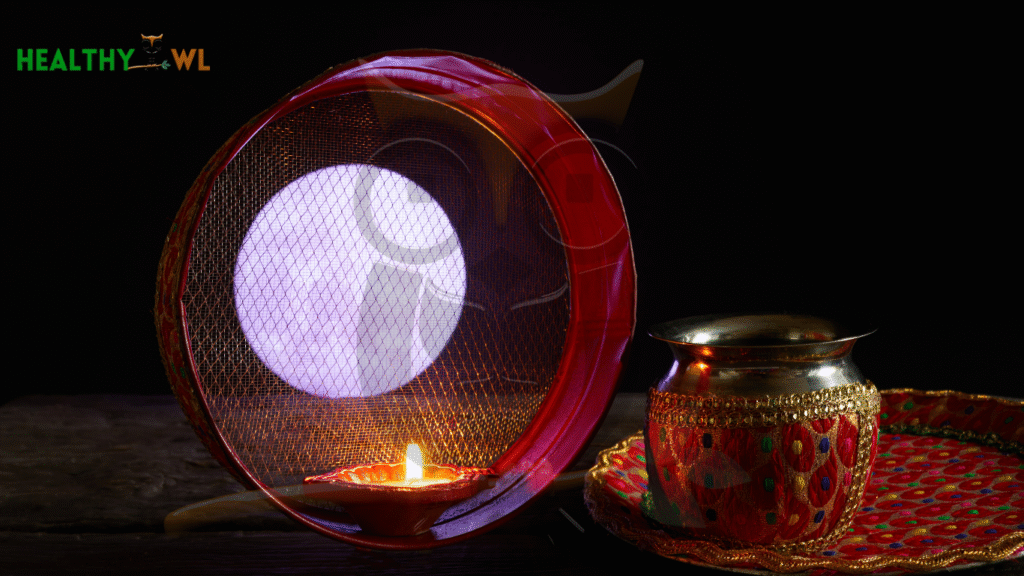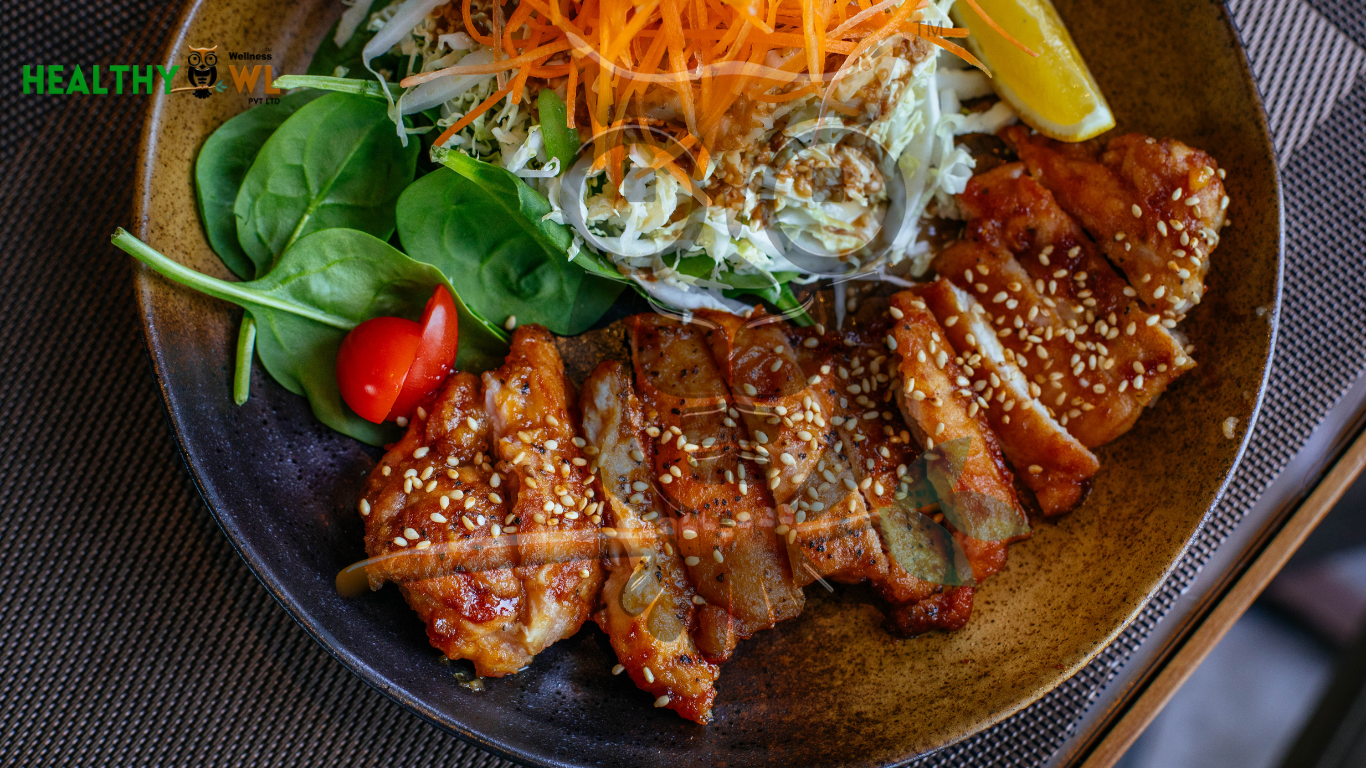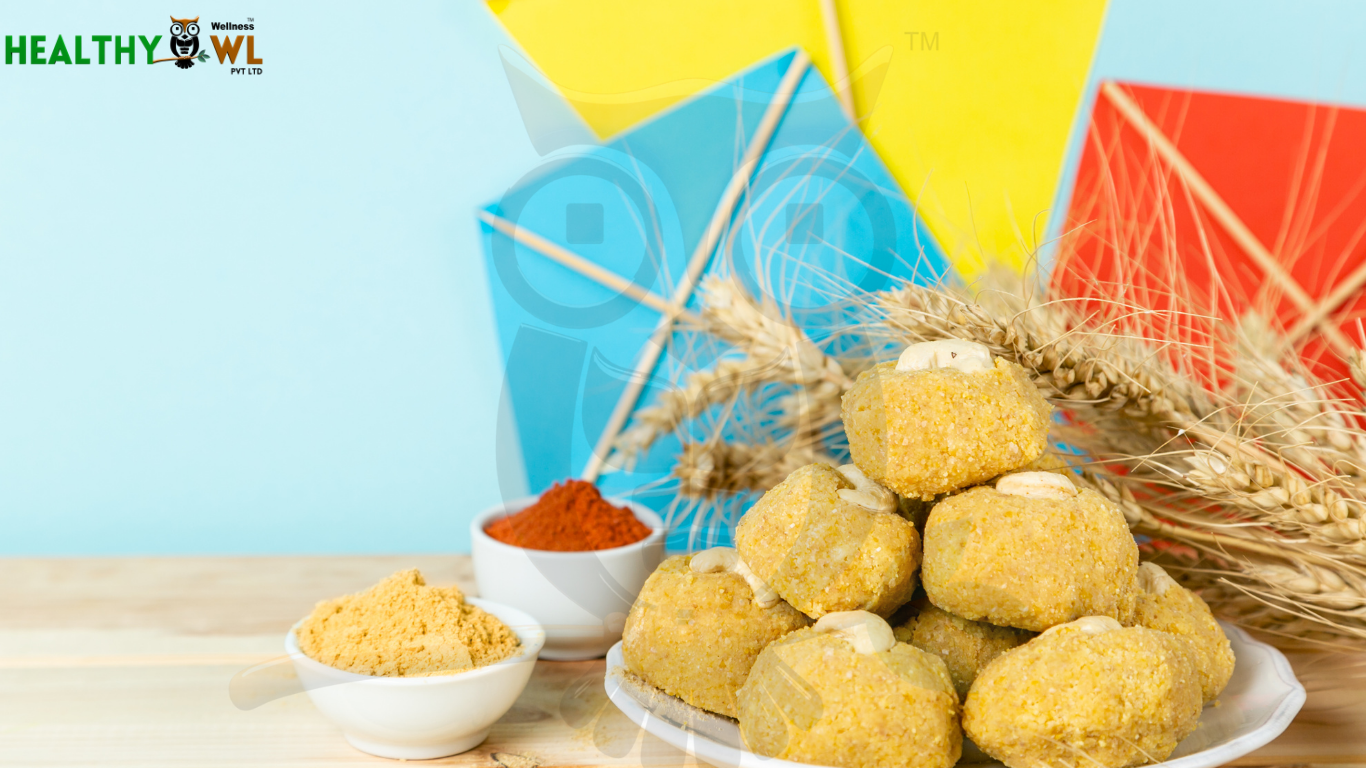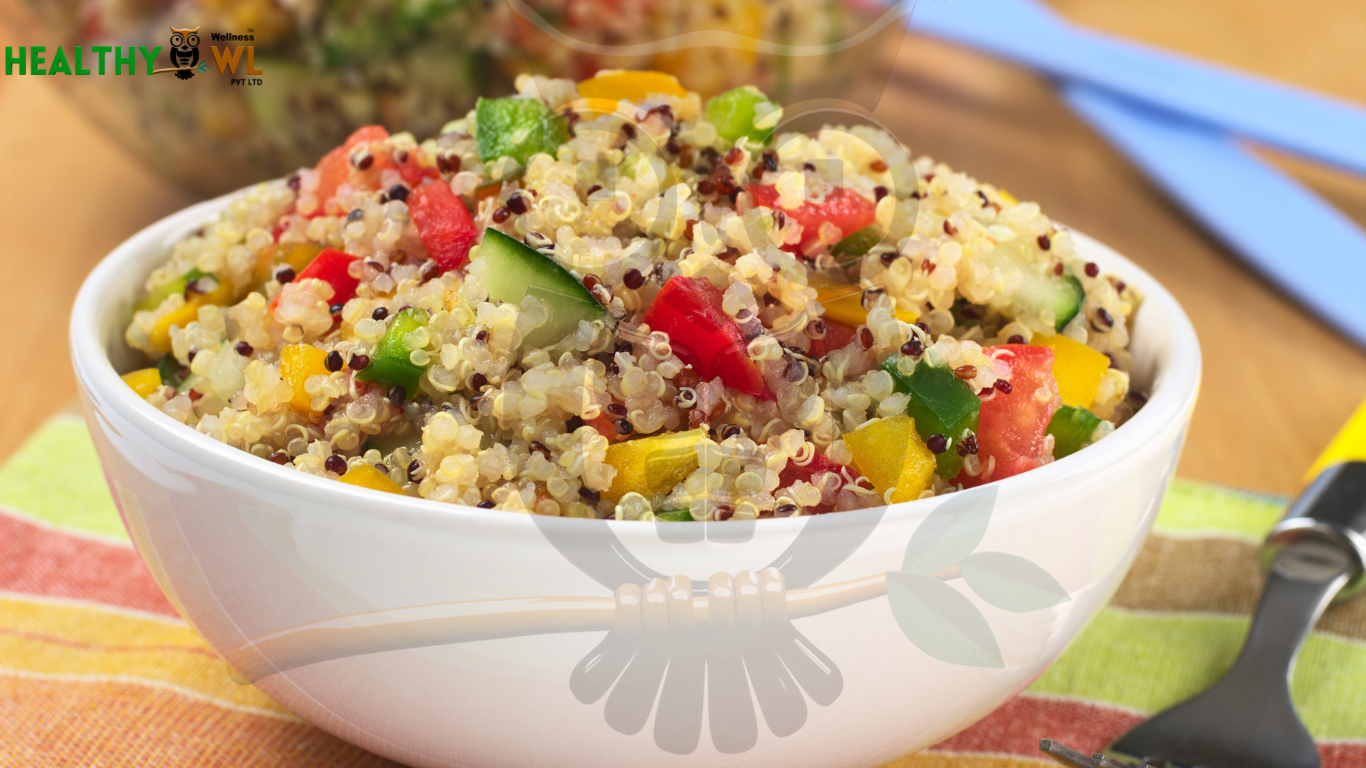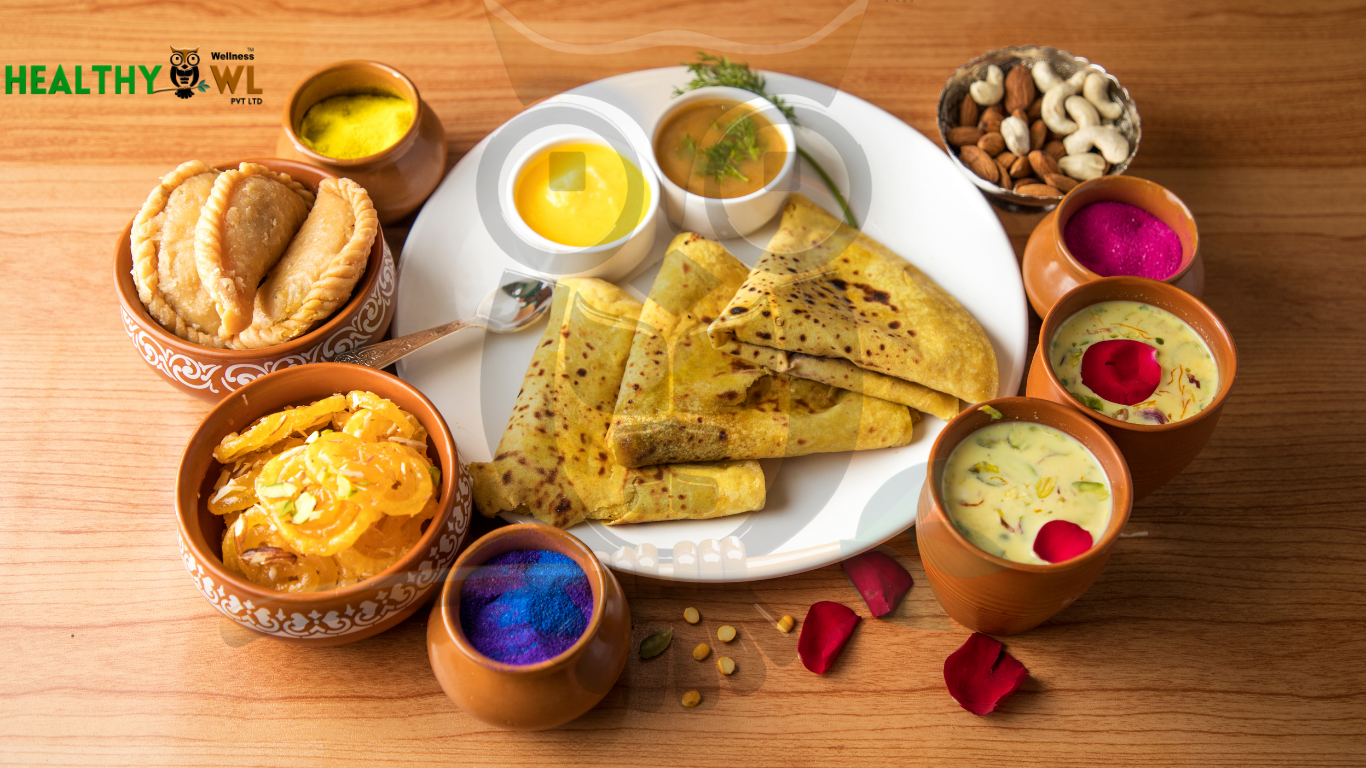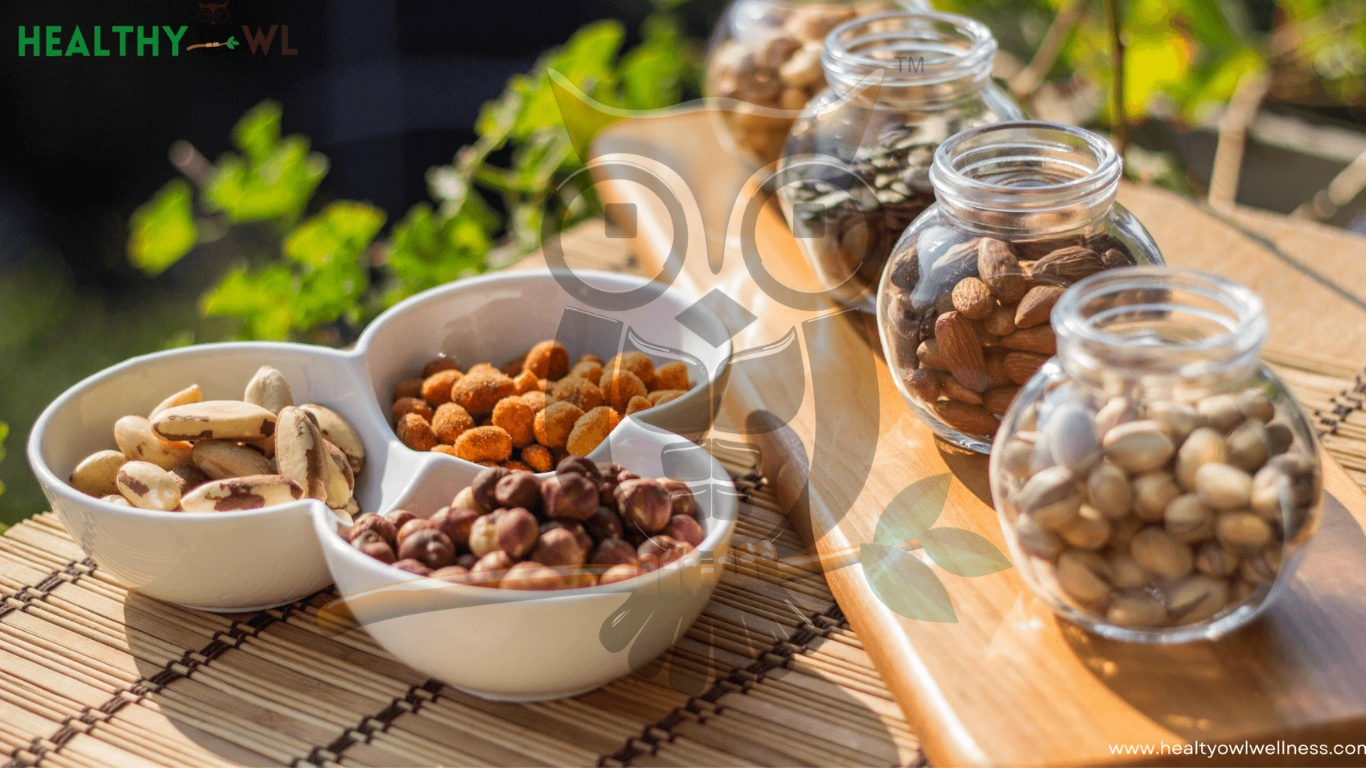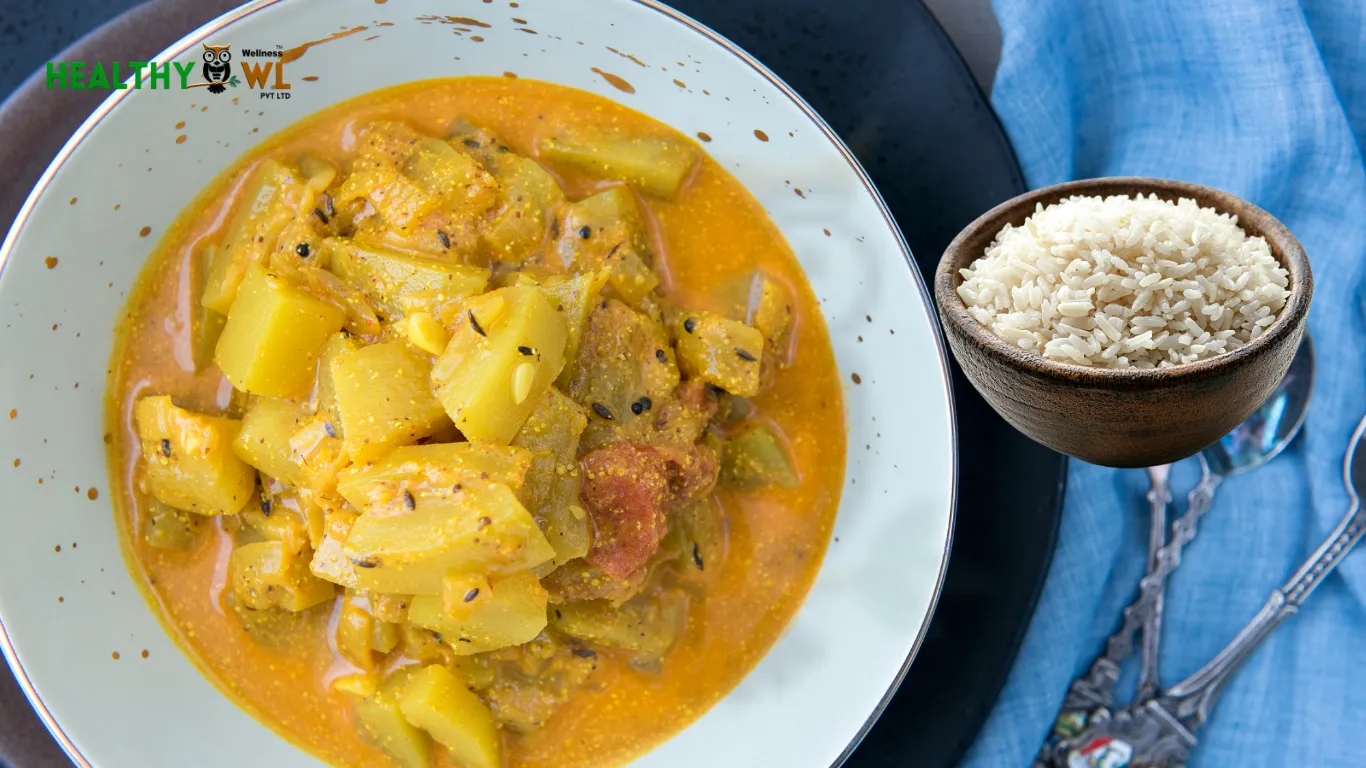Karva Chauth is a time-honored tradition that celebrates love and devotion, with fasting playing a central role. Women fast from sunrise to moonrise, often without consuming food or water, making it essential to carefully manage nutrition both before and after the fast. Without proper planning, the day’s rigorous fast can lead to dehydration, fatigue, and other health issues. But by making thoughtful food choices, you can ensure your body remains strong and nourished throughout the day.
Pre-Fasting (Sargi) Nutrition: The Key to Sustained Energy
The pre-dawn meal, or Sargi, is the foundation of a successful fast. It’s crucial to focus on foods that are nutrient-dense and provide long-lasting energy.
- Incorporate Nuts and Seeds: Include almonds, walnuts, and flaxseeds in your Sargi. These offer healthy fats and proteins that keep you feeling full longer, helping to avoid energy crashes during the day.
- Whole Grains Over Refined Carbs: Opt for grains like oats, bajra, or amaranth over refined options. These whole grains are rich in fiber and offer sustained energy release, reducing hunger pangs. You can make dishes like bajra kheer or ragi porridge to combine nutrition and taste.
- Hydrating Fruits: Seasonal fruits like apples, oranges, and bananas provide essential hydration and vitamins. These fruits are high in water content, helping to hydrate the body before the fast begins.
- Low-Fat Dairy: A glass of milk or yogurt can offer the right balance of protein and fats to maintain energy. Adding a bowl of makhana (fox nuts) to yogurt enhances both taste and nutrition.
Smart Hydration Strategies
Fasting for long hours without water is challenging. To minimize the risk of dehydration, make hydration a focus before the fast begins.
- Coconut Water: Start your day with coconut water to replenish electrolytes and ensure balanced hydration.
- Buttermilk or Lassi: These traditional drinks not only hydrate but also provide essential nutrients like calcium and magnesium.
- Avoid Caffeine: Limit caffeinated drinks like tea or coffee, as they can dehydrate your body.
Post-Fast (Breaking the Fast) Considerations
When the fast is broken after moonrise, it’s tempting to indulge in heavy, rich foods. However, doing so can overwhelm the digestive system. Here’s how to break the fast gently and healthily:
- Start Slow with Light Foods: Begin with a handful of roasted nuts, which offer a mix of fats and nutrients without overloading the stomach. You can also enjoy a few dates or a bowl of kheer made with low-fat milk and jaggery.
- Avoid Sugary, Fried Foods: Traditional sweets and fried snacks are often high in sugar and fat, which can lead to post-fast indigestion. Opt for homemade versions of sweets like sewaiyan or barfi, using jaggery as a sweetener instead of refined sugar.
- Nutritious Sweets: Swap out rich desserts like gulab jamun for lighter options. Makhana kheer made with low-fat milk is a great way to satisfy sweet cravings while keeping the calorie count low.
- Hydrate with Nutrient-Rich Drinks: Replenish your body’s fluids with fresh juices or a glass of water mixed with lemon and a pinch of salt. These help restore electrolytes lost during the fast.
Foods to Avoid
Certain foods should be limited or avoided during Karva Chauth to maintain health:
- Fried and Oily Foods: Fried items like pakoras or samosas can be hard on the stomach after a long fast. Try air-frying or baking these snacks instead.
- Processed Sugars: Instead of sugar-laden sweets, use natural sweeteners like jaggery or dates.
- Simple Carbs: White rice or heavily processed carbs can spike blood sugar levels, leading to energy crashes later. Instead, include high-fiber grains like samak rice or rajgira.
Conclusion: Balance Devotion with Nutrition
Karva Chauth is a beautiful celebration of love and dedication, but it’s equally important to care for your health during the fast. By making simple swaps—choosing whole grains over refined carbs, drinking hydrating fluids, and avoiding excessive fried foods—you can maintain your energy levels and feel your best throughout the day. Celebrate mindfully by nourishing your body and soul, ensuring that both remain in balance during this special occasion.


